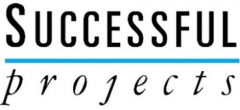Guiding Principles
Personal guidance is an important part of the learning activities. Students come from all different backgrounds, cultures, and experiences and have different learning styles. This diversity means that an activity that is tremendously successful for one student may be a meaningless activity for another. Good communication including personal feedback, flexibility and customization, and learning assessment from a variety of different perspectives is important to providing effective personal guidance. Small groups, and one-on-one time with the instructor, should be designed into effective training and educational programs.
Innovation is stressed as important to good project management. With respect given to specific methodologies, Project Management Office (PMO) policies, and the Guide to the Project Management Body of Knowledge (PmBOK®), effective project management practices must include innovation and flexibility in order to operate at its highest possible level.
Coaching and mentoring provides the most direct and effective feedback possible. While classroom learning, online learning and book knowledge is valuable, nothing builds competency better than coaching and mentoring on real projects with one-on-one instruction.
Comprehensive planning is stressed as integral to successful project management. A professional project plan includes a clear understanding of the project objectives, stakeholders, scope, schedule, resources, risks and issues, communication needs, quality and the environment. Although many approaches, such as SCRUM and Agile, may aim to minimize time spent in planning, thorough planning is generally a high payback activity. We must figure out ways to perform comprehensive planning in innovative and time-efficient ways.

